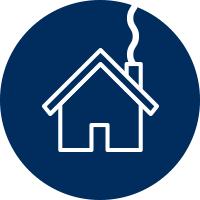Believe and Receive: Reflection on the 3rd Sunday of Advent
- Jeremy Duo
- Dec 5, 2016
- 5 min read

“Rejoice in the Lord always; again I say, rejoice. / Indeed, the Lord is near.” This is how the Liturgy for this Sunday, the Third Sunday of Advent, greets us. It is an exhortation to rejoice. Why? Because the Lord is near this Advent.
“Let the wilderness and the dry-lands exult, / let the wasteland rejoice and bloom” is how the prophet Isaiah, at the beginning of the First Reading, opens to give us the message of salvation. In the Old Testament, before Jesus’s Incarnation (His coming as a human being among us as a child at Bethlehem), sins were forgiven by a priest “placing” a person’s sins on an animal and then sacrificing the animal. The idea was that the animal would pay the price for the person’s sins instead of the person (sound familiar? It’s a foreshadowing of Jesus!). The problem was, though, that soon after God instituted this method of forgiving sins, it became mere legalism, and many people were not even sorry for their sins anymore. They just did it because they were commanded to do so periodically. This is the kind of practice that the prophet Isaiah is calling “dry-land” and “wastelands.” These kind of lands are infertile and do not bear fruit. So it is with these un-sorrowful practices, they do not bear fruit or bring forgiveness like God wants them to: “Let it bring forth flowers like the jonquil” the prophet will go on to say in the same sentence.
Further on in the Second Reading, Isaiah prophesies a time where wastelands will become orchards and vineyards filled with abundant fruits: “Then the eyes of the blind shall be opened, / the ears of the deaf unsealed, / then the lame shall leap like a deer / and the tongues of the dumb sing for joy / for those the Lord has ransomed shall return.” Isaiah’s prophecy has two different events in mind: the coming of the Lord as a human among us — the Incarnation; and the Second Coming of the Lord where He will come to judge the living and the dead. This prophecy bears the exact same two events that Advent does. We prepare for the coming of the Lord as a babe in Bethlehem and the Second Coming of Jesus in glory.
The first time that Jesus comes, He will heal the blind, the deaf, the lame, and the dumb and He will “give His life as a ransom for many,” (Matthew 20:28). However, we know that there still are blind, deaf, lame, and dumb people in the world or people with a whole range of other ailments and Jesus’ first coming already happened. Right, but the Lord wanted to show us that it was He who had authority over all of creation when He first came, that we might put our trust in Him. But didn’t He die for us and save us? Yes! But He didn’t suffer so that we wouldn’t have to. He suffered so that we would know how to. That being said, there will come a time when He shall come again in glory, and the dead shall rise and “come to Zion shouting for joy, … joy and gladness will go with them / and sorrow and lament be ended” along with every other ailment that ever existed — including death! “If the Son makes you free, you will be free indeed” (John 8:36). This is the joy that we look forward to and proclaim when we suffer as He did. Let us be patient and persevere saying: “Come, Lord, and save us!”
Perhaps this week we can pray Psalm 145, the Psalm that the mass will proclaim on Sunday, and ask the Lord with the words of the Psalm to hasten and free us from our blindness: Our blindness to His face in our brethren and our blindness to His Spirit in our lives. St James will certainly help us with his reading this Sunday: “Be patient, brothers, until the Lord’s coming… do not lose heart, because the Lord’s coming will be soon.” Let us lend him our ears.
In the Gospel this Sunday, Jesus will Himself refer to the prophecy that Isaiah proclaimed in our First Reading. John the Baptist knew that he was supposed to be the herald of the Messiah but instead, toward the end of his life, he found himself in prison. He then double-checks and sends his disciples to Jesus to ask Him if He is “the one who is to come, or have we got to wait for someone else?” Jesus replies in the words of Isaiah: “Go back and tell John what you hear and see; the blind see again, the lame walk, lepers are cleansed, and the deaf hear, and the dead are raised to life and the Good News (Gospel) is proclaimed to the poor; and happy is the man who does not lose faith in me.”
Jesus already came and fulfilled this prophecy once. Will He not come again just like He promised and wipe away every tear Himself? (See Revelation 7:17 and 21:4).
Jesus says toward the end of this Sunday’s Gospel about John the Baptist that “the least in the Kingdom of heaven is greater than he is.” Wow, doesn’t that make the bar really high for us? Yes it does! However, Jesus has given us a way to get there that St John the Baptist never had: His own body and blood in the Eucharist — Jesus’ very life in us! The bar can look like a tiny speck to us if we believe and receive.
I was once asked, “How much grace does Jesus give us in the Eucharist?” I responded with a question: “Well, what is grace?” “God’s divine life — His very self,” they responded. “Does Jesus give us His very self in the Eucharist? Yes He does. Whole and entire. Therefore, He gives us all the grace possible, more than we could ever need.” This means that if we are not being set free from our addictions to sin, then we are not believing in His power enough and we are blocking His grace with our monstrous lack of faith — the same deadly doubt that caused the first fall of man in the Garden of Eden.
The Lord has promised us and He is faithful. He has said so in this Sunday’s Psalm, Psalm 145 as I mentioned: “It is He who gives bread to the hungry, / the Lord, who sets prisoners free.” He can set you free too; just believe and receive.
See you next week on Seeking the Word!



































Comments